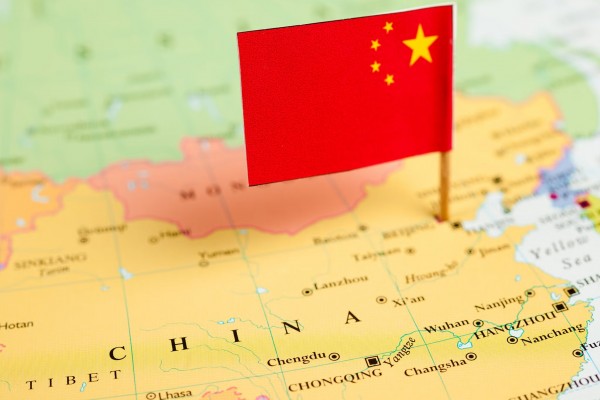Review №3 on Chinese Antitrust News from BRICS Antimonopoly Centre Experts
- People's Daily on "regulating capital"· Seminar on sustainable development of Internet companies
- The Supreme People's Court on activities in the Internet sector
- Expert advice on platform regulation
- Tencent's NFT project receives UN approval
- Meeting on prices and protection of trade secrets
- Draft Pilot Methods for Data Security
- Administrative monopoly in Shandong Province
- Verification of information on inflated prices for iron ore
People's Daily on "regulating capital"
China's main media outlet, People's Daily (Renmin Ribao), published an explanatory article about the party's directive given at a meeting on economic work: "It is true to understand and control the characteristic features of capital and the laws of its behaviour." This includes improving the system of negative market entry lists; strengthening regulation of both the "source" and the entire industry; actively combating anti-competitive practices and unfair competition; put up "traffic lights" for capital. The red light of the traffic light regulates development and marks the boundaries of what is permissible, while the green light confirms the positive role of capital as a factor of production.
The authors argue that no one denies the importance of capital, but its development must certainly be "orderly". Within the framework of a socialist market economy, various forms of capital can exist, but their "savage growth" must be effectively prevented and suppressed.
Source: Paper
Seminar on sustainable development of Internet companies
Together with the Committee for Reform and Development, the Ministry of Industry and Informatization and SAMR, the Cyberspace Administration held a seminar for Internet companies to promote their healthy and sustainable development. The participants expressed their common intention to unleash their innovative potential and contribute to the establishment of China as a strong Internet power.
Source: SAMR
The Supreme People's Court on activities in the Internet sector
The Supreme People's Court said that in the past few years, work to develop justice in the Internet industry has been carried out in several directions:
1) Improving the judicial system in response to new challenges (for example, the publication of the IP Judicial Protection Plan for 2021-2025.).
2) Improving the rules for the jurisdiction of Internet cases (for example, in 2017, the world's first court for cases related to the Internet was established in the Chinese city of Hangzhou, and in 2018, similar courts appeared in Beijing and Guangzhou).
3) Good case handling (at the end of 2020, 894 civil antitrust cases had first hearings across the country, and 854 cases had been adjudicated).
All this has brought significant results in the fight against anti-competitive practices on the Internet. Going forward, the court plans to develop an online lawsuit system and issue judicial interpretations and standards in a timely manner to stop such practices.
Source: Weixin
Expert advice on platform regulation
In her article, Jiang Xiaojuan, dean of the School of Government at Tsinghua University, cited the biggest challenge to regulation in the digital age as platforms become too large to be regulated. She offered six recommendations to address such a problem:
1) develop compliance management on platforms and strengthen state supervision of compliance;
2) carry out regulation of platforms in accordance with their type;
3) strengthen the regulation of algorithms with an emphasis on the openness of the rules;
4) protect fair competition between platforms and maintain a balance of interests of different parties;
5) apply more targeted regulation in areas with significant externalities (for example, strongly influencing public opinion);
6) show increased sensitivity to changes and adapt regulatory practices in a timely manner.
Source: Weixin
Tencent's NFT project receives UN approval
The project to develop "Technical Standards for Digital Collecting Services Based on Distributed Ledger Technologies" was approved by the International Telecommunication Union, a specialized agency of the United Nations. Tencent Holdings developed the project in cooperation with Ant Group, China Academy of Information and Communication Technology, Beijing University of Posts and Telecommunications, etc. According to the company, this is the first draft of standards for digital tokens approved by the UN. The first draft will be ready by the end of 2022.
Chinese companies do not use the term NFTs and refer to them as "digital collectables" to distance themselves from associations with market speculation banned by the Chinese government.
Source: SCMP
Meeting on prices and protection of trade secrets
Under the chairmanship of SAMR Deputy Head and State Antimonopoly Bureau Commissioner Ms Gan Lin, the National Meeting on Price Supervision, Competition Affairs and the Establishment of Innovative Trade Secret Protection Pilot Zones was held. The meeting emphasized that the protection of trade secrets helps increase the state's overall competitiveness and contributes to
high-quality development. For 2022, "six aspects" have been identified that need to be mastered for effective regulatory work:
- new requirements for the policy to reduce taxes and fees;
- new challenges against the backdrop of complex price fluctuations;
- new state of competition in the market;
- the main requirements for achieving stability and progress;
- new trends in the development of the digital economy;
- ability to normalize emergency situations.
Source: SAMR
Draft Pilot Methods for Data Security
The Ministry of Industry and Information Technology (MIIT) has published an updated draft of the Pilot Methods for Regulating Data Security in Industry and Information Technology for public consultation. It is planned to require data processors to store "important" and "key" data only in China if necessary and to undergo a special security assessment if they need to be transferred abroad. Operators are also responsible for data processing security and, depending on the category of data, take appropriate measures to protect and prevent threats. In addition to industrial and telecommunications data, the category of "wireless" (radio) data has been added in the new edition.
Source: Baijiahao
Administrative monopoly in Shandong Province
The provincial market agency found an antitrust violation: The Hejie City Emergency Department, on behalf of the Municipal Safe Production Committee, required all retail stores wishing to obtain a fireworks sales license to sign a network sales agreement with local wholesalers. During the investigation period, the Office cancelled its request and undertook to deal more intensively with cases of administrative restriction of competition and comprehensively guarantee the legitimate rights and interests of all market participants.
Source: SAMR
Verification of information on inflated prices for iron ore
SAMR Price Control Departments and the Development and Reform Committee spoke with organizations that disseminate information about iron ore mining. They pointed out that in the face of fluctuating ore prices, it is necessary to carefully check the reliability of sources of information and confirm the correctness of published reports. Posting false news about price increases, information falsification and price manipulations is prohibited.
Source: SAMR




